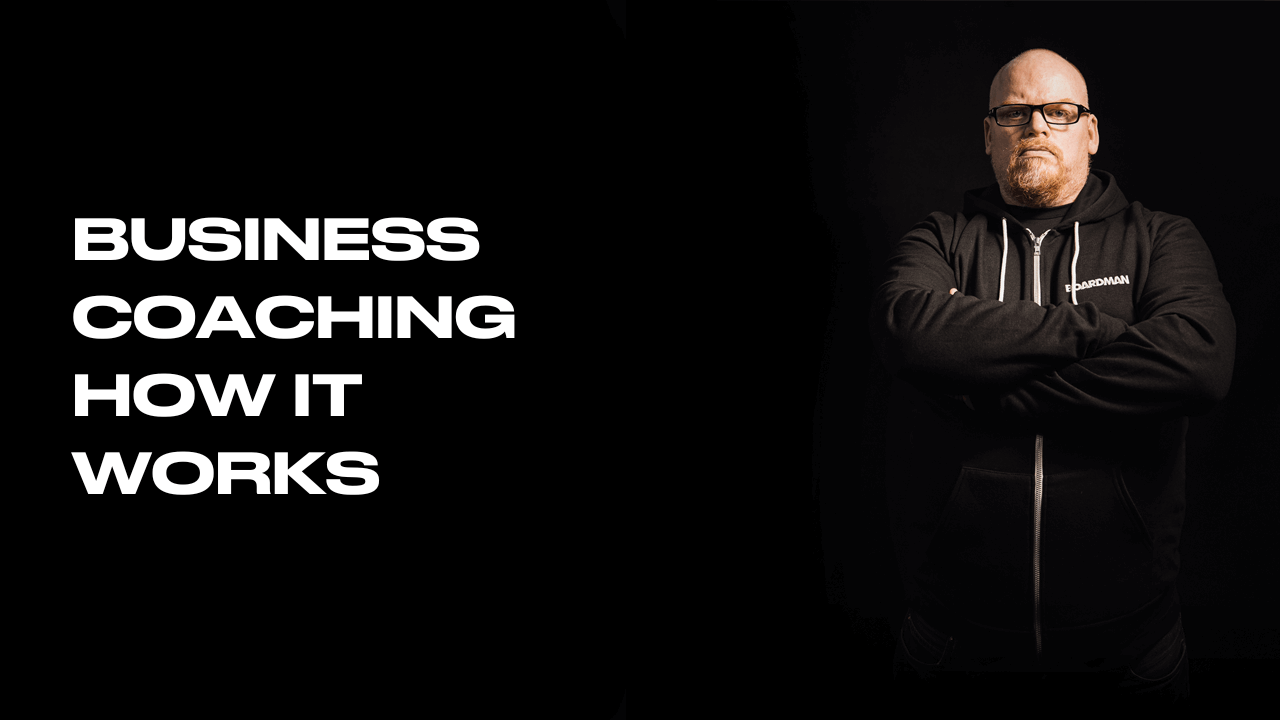
Business Coaching - How It Works
In the modern business world, the phenomenon of business coaching has become increasingly pivotal. The terrain of mid-stage scaling or fast-growing businesses is a challenging one, marked by rapid change, complex decision-making, and incessant competition. Successful navigation of this terrain often necessitates expert guidance. That's where business coaching steps in.
Understanding Business Coaching
At its core, business coaching is about helping leaders unlock their potential and make strategic decisions that drive the success of their businesses.
A 2017 PricewaterhouseCoopers (PwC) survey reported that the vast majority of companies – 86% – stated that they at least made their investment back, with an impressive 19% indicating an ROI of at least 50 times the initial investment.
"ROI of at least 50 times the initial investment."
But what does a business coach do?
They provide an objective, external perspective to leaders, offer strategic advice, help leaders hone their skills, and facilitate their personal and professional development.
Essentially, a coach helps the leader develop the clarity, vision, and abilities necessary to move their business forward.
The Impact of Business Coaching
Harvard Business Review conducted a survey in 2015 that found the top three reasons businesses engaged coaches were:
- to develop high potentials or facilitate transition (48%);
- act as a sounding board (26%);
- and address derailing behavior (12%)
This aligns with the growing need for businesses to continuously adapt, innovate, and outperform their competitors.
Further, a 2021 study in the Journal of Business Research revealed that coaching positively impacts the performance of both individuals and teams in businesses.
This effect was more pronounced for businesses experiencing rapid growth or those at a critical juncture, where strategic decisions had significant implications.
The Anatomy of Effective Business Coaching
Research published in Consulting Psychology Journal in 2019 demonstrated that successful coaching engagements have four main components:
- the client's openness to development
- the quality of the relationship between coach and coachee
- the coach's methodology
- the support environment
Let's unpack these components:
Client’s openness to development:
The coachee must have a willingness to learn, grow, and change. Without this, the most competent coach will be ineffective.
Quality of the relationship:
The chemistry between coach and coachee needs to be positive, trusting, and respectful. This mutual understanding and trust forms the bedrock of successful coaching.
Coach's methodology:
The coach's expertise, style, and approach play crucial roles in the success of the coaching engagement. It should be tailored to the needs, goals, and characteristics of the coachee.
Support environment:
A supportive and conducive environment is vital for the coachee to apply the learning and insights gleaned from coaching.
The Need for Coaching in Today's Business Landscape
The world is moving faster than ever, and businesses are facing unprecedented challenges and opportunities.
A 2020 study from the International Coaching Federation (ICF) found that 70% of organizations planned to increase their use of coaching over the next five years.
Why this surge in interest?
It can be attributed to several factors:
- Rapid technological advancement: Technology is transforming every aspect of business, and leaders need to adapt and innovate to keep up.
- Rising complexity: Businesses are getting more complex, necessitating nuanced decision-making and strategic foresight.
- Increased competition: Globalization and digitalization mean competition is fiercer than ever.
- Workforce changes: The nature of work is changing, with remote work, gig economy, and generational shifts redefining the workplace.
Conclusion
In today's rapidly evolving and highly competitive business landscape, coaching offers tangible benefits that can significantly improve a business leader's performance and, by extension, the performance of their organization. With an expert business coach by their side, leaders can navigate the challenges and opportunities that come their way with greater confidence, clarity, and strategic insight.
As the demand for business coaching continues to surge, it's critical for business leaders and entrepreneurs to understand the value it can bring to their organizations and their leadership. After all, in the world of business, every competitive edge counts.
Remember that business coaching isn't a silver bullet – it's a tool in your arsenal, best leveraged in conjunction with a robust business strategy, a resilient mindset, and a relentless drive for success.
Leveraged properly, it could be one of the best investments you'll ever make in your business and yourself.
If you are an ambitious professional looking to achieve your business goals and take your business to the next level, click here if you'd like to Book a 30-Minute Coaching Session with Ross.


